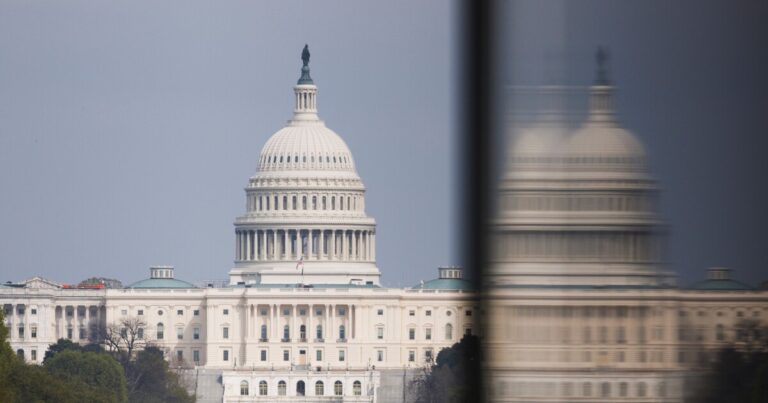The One Big Beautiful Bill Act, as passed by the House and whose revised text was released Monday by Republicans on the Senate Finance Committee, includes a number of significant tax provisions for both corporate taxpayers and nonprofits.
“Even before we saw the legislative text of the One Big Beautiful Bill, we knew these would be the big provisions for most of our clients that they were interested to see what was going to happen,” said Jess LeDonne, director of tax technical at the Bonadio Group. “The big one that I get the most questions about right now would be the expensing of research and development costs, Section 174. That provision, specifically, allows for the suspension of the amortization, so you would be able to immediately expense those costs.”
Another significant provision involves bonus depreciation, Section 168(k). “The bill, as written as it currently sits in the Senate, would allow for 100% bonus depreciation to be reinstated,” said LeDonne.
She sees that as a welcome extension. “That was the one we have been watching phase down already, and was set to phase out completely by 2027,” said LeDonne.
Another provision involves the qualified business interest deduction provision. “There’s an increase there from 20% to 23% and that one does not have a sunset date, so that would be more of a permanent potential increase to that QBI deduction,” said LeDonne.
Business interest deductions would also be extended “The last one that I’m always being asked about would be the change in the calculation for the limitation on business interest expense deductions in 163(j),” said LeDonne. “There’s a temporary reinstatement in the bill to go back to the EBITDA-based calculation.”
Nonprofit tax changes
Nonprofits such as foundations, colleges and universities would also see wide-ranging impacts from the bill that was passed by the House and whose amended text was released Monday from Senate Republicans.
“The tax bill, as it’s written right now out of the House, has a number of provisions that impact the nonprofit sector,” said Aaron Fox, a managing director at CBIZ. “We will see how many of them stay in effect after the Senate is done marking up the bill. Some of the more notable provisions in the bill, to my mind, are the private foundation increase in tax rates depending on the size of their asset base. That would mark a significant departure from historic norms, where previously the tax rate was only 1.39%, and the rationale was that it was there to pay for the cost of administering foundations.”
The increase in tax on investment income for colleges and universities could also have a major effect on larger educational institutions. “Right now, the current rate is 1.4%, but in certain instances where the student-adjusted endowment amount goes up to $2 million or more, then colleges could be looking at significant increases in that excise tax rate,” said Fox. “That’s a pretty significant one that would not impact all of higher education, but have a pretty broad impact on the bigger colleges that have very strong balance sheets.”
Other provisions involve royalty income and transportation tax fringe benefits.
“Royalty income change is going to be pretty broad in application, because many nonprofits, especially in the social welfare space, have royalty contract arrangements, and some of those royalties relate to name and logo licensing or sales,” said Fox. “I think that has an opportunity to have a really broad impact as well. Finally, my fourth one would be what they’re thinking about doing with transportation tax benefits and bringing back the rule that created unrelated business income tax on the provision of those benefits, which is sort of a tricky area in the tax law. It created a lot of uncertainty and difficult filings for nonprofits back in 2017 and 2018 when this idea was first put into law and then later repealed.”
Late Monday afternoon, Senate Finance Committee chairman Mike Crapo, R-Idaho, released Senate Republicans’ version of the bill. “This bill prevents an over-$4 trillion tax hike and makes the successful 2017 Trump tax cuts permanent, enabling families and businesses to save and plan for the future,” Crapo said in a statement. “It delivers additional tax relief to middle-class families still recovering from record inflation under the Biden Administration. It powers the economy by permanently extending critical pro-growth provisions and introduces new incentives for domestic investment, providing certainty for American job creators to spur domestic economic activity and invest in their workers. The legislation also achieves significant savings by slashing Green New Deal spending and targeting waste, fraud and abuse in spending programs while preserving and protecting them for the most vulnerable. I look forward to continued coordination with our colleagues in the House and the Administration to deliver President Trump’s bold economic agenda for the American people as quickly as possible.”
The top Democrat on the Senate Finance Committee criticized the bill, pointing out that it would expand corporate tax breaks at the expense of individual taxpayers. “The House Republican version of this bill was already a class war, but Senate Republicans decided to inflict even more devastation on the lives of working Americans to give even larger handouts to the top,” said Senate Finance Committee ranking member Ron Wyden, D-Oregon, in a statement. “The biggest winners here are wealthy corporations who would get hundreds of billions of dollars in additional tax breaks on top of what they got in the House Republican bill. Senate Republicans would pay for those new corporate tax breaks by making even deeper cuts to Medicaid, slashing funding for rural hospitals and other essential health care providers and throwing cash-strapped states off a funding cliff. If those Medicaid cuts weren’t damaging enough, this bill would endanger hundreds of thousands of clean energy jobs and take food out of the mouths of millions of children. This is caviar over kids, and Mar-a-Lago over the middle class.”


